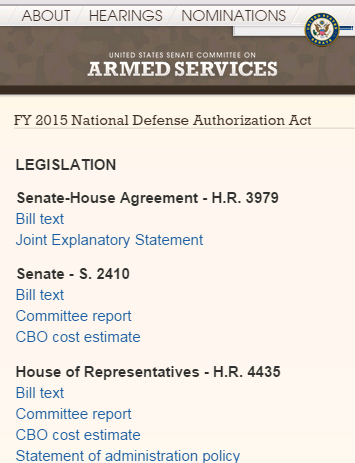hankyoreh
Links to other country sites 다른 나라 사이트 링크
US moving for closer missile defense cooperation with South Korea and Japan

The US Department of Defense looks set to start examining plans early next year for stronger cooperation on trilateral missile defense with South Korea and Japan.
The move, which comes after Congressional approval of the National Defense Authorization Act, is drawing attention as a bid to actively link South Korea’s own Korean Air and Missile Defense system to the system spearheaded by the US-Japan alliance.
The US Senate Committee on Armed Services reached a final agreement on Dec. 8 on the National Defense Authorization Act, which reflects the terms passed by the House in May requiring the Secretary of Defense to assess plans for stronger trilateral cooperation and notify both committees within six months after the act goes into effect. The bill would formally enter effect next January once it passes the Senate on Dec. 11.
According to the legislation, trilateral missile cooperation is to strengthen the US alliance’s security in Northeast Asia and bolster forward-deployed forces in the region and defense capabilities for the US mainland. The bill also calls for “an assessment to identify opportunities for increasing missile defense cooperation among the United States, Japan, and the Republic of Korea, and to evaluate options for enhanced short-range missile, rocket, and artillery defense capabilities to address threats from the Korean Peninsula.”
In terms of specific areas for assessment, the legislation calls for looking at “candidate areas for increasing missile defense cooperation, including greater information sharing, systems integration, and joint operations.” This could be a hint that Washington may soon pursue a trilateral information sharing agreement.
With ongoing cuts in the defense budget, Congress also asked the Defense Department to reevaluate the “rebalancing Asia” strategy that has been the Barack Obama administration‘s key foreign policy approach in the region.
“The Secretary of Defense shall commission an independent review of the United States Asia-Pacific rebalance,” the legislation reads.
It goes on to instruct the review committee to report its findings to the Secretary of Defense within six months, with the Secretary to report to the Senate and House Armed Services Committees within three months after that.
Issues to be assessed in the review committee’s report include potential crises that could impact the Asia-Pacific region as the security environment changes over the next ten years, the effects of adjustments to the organization of regional military power between the US and its friends and allies, and weaknesses in US military capabilities in terms of submarines, naval power, ballistic missiles, defense, and reconnaissance.
By Park Hyun, Washington correspondent
Please direct questions or comments to [english@hani.co.kr]

Editorial・opinion
![[Column] Has Korea, too, crossed the Rubicon on China? [Column] Has Korea, too, crossed the Rubicon on China?](https://flexible.img.hani.co.kr/flexible/normal/500/300/imgdb/original/2024/0419/9317135153409185.jpg) [Column] Has Korea, too, crossed the Rubicon on China?
[Column] Has Korea, too, crossed the Rubicon on China?![[Correspondent’s column] In Japan’s alliance with US, echoes of its past alliances with UK [Correspondent’s column] In Japan’s alliance with US, echoes of its past alliances with UK](https://flexible.img.hani.co.kr/flexible/normal/500/300/imgdb/original/2024/0419/2317135166563519.jpg) [Correspondent’s column] In Japan’s alliance with US, echoes of its past alliances with UK
[Correspondent’s column] In Japan’s alliance with US, echoes of its past alliances with UK- [Editorial] Does Yoon think the Korean public is wrong?
- [Editorial] As it bolsters its alliance with US, Japan must be accountable for past
- [Guest essay] Amending the Constitution is Yoon’s key to leaving office in public’s good graces
- [Editorial] 10 years on, lessons of Sewol tragedy must never be forgotten
- [Column] A death blow to Korea’s prosecutor politics
- [Correspondent’s column] The US and the end of Japanese pacifism
- [Guest essay] How Korea turned its trainee doctors into monsters
- [Guest essay] As someone who helped forge Seoul-Moscow ties, their status today troubles me
Most viewed articles
- 1[Column] The clock is ticking for Korea’s first lady
- 2After 2 months of delayed, denied medical care, Koreans worry worst may be yet to come
- 3Hong Se-hwa, voice for tolerance whose memoir of exile touched a chord, dies at 76
- 4[Column] Has Korea, too, crossed the Rubicon on China?
- 5US overtakes China as Korea’s top export market, prompting trade sanction jitters
- 6Samsung barricades office as unionized workers strike for better conditions
- 7[Editorial] As it bolsters its alliance with US, Japan must be accountable for past
- 8[Correspondent’s column] In Japan’s alliance with US, echoes of its past alliances with UK
- 9All eyes on Xiaomi after it pulls off EV that Apple couldn’t
- 10[Correspondent’s column] The US and the end of Japanese pacifism